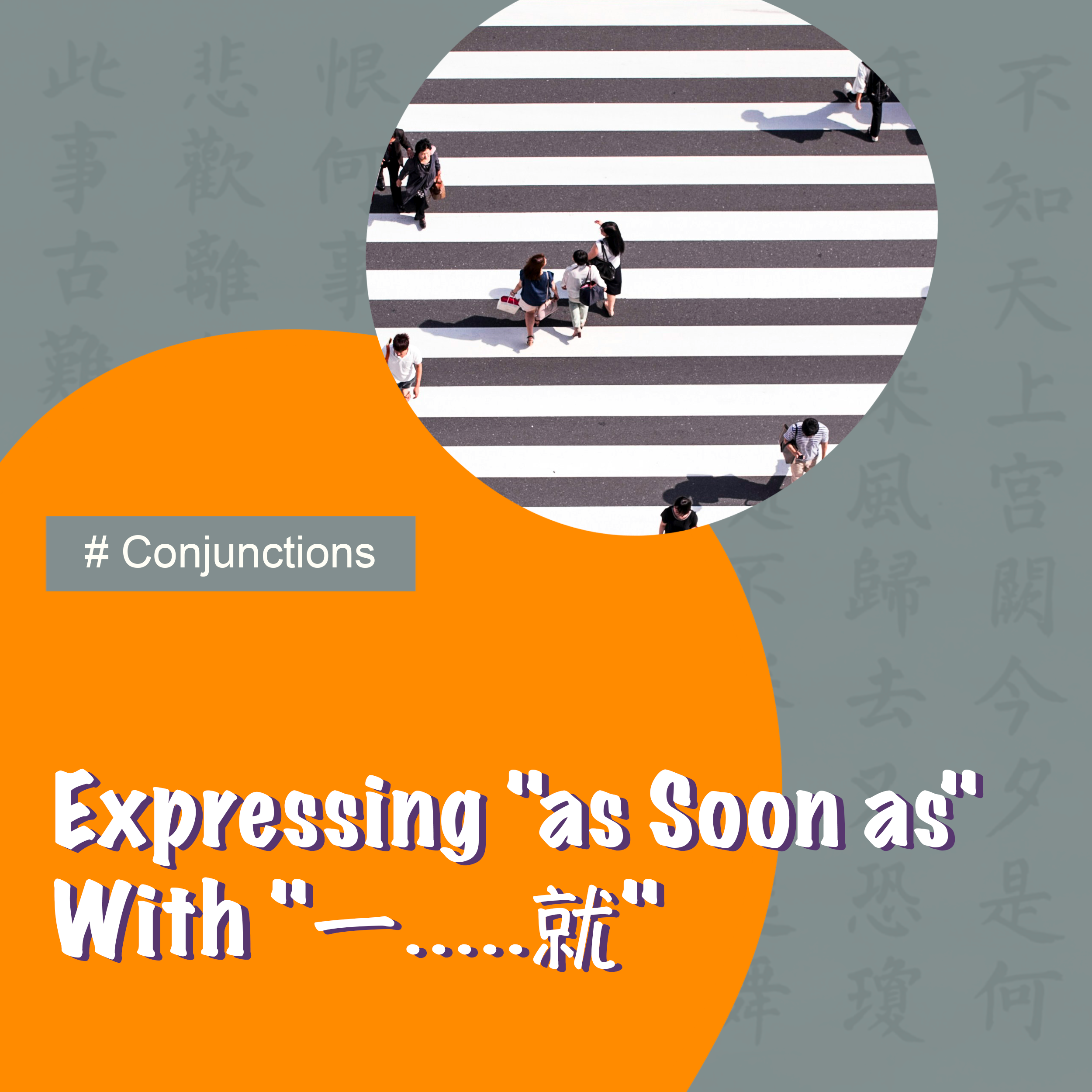Expressing "as Soon as" With "一.....就"
The 一yī … 就jiù pattern is very common in Chinese grammar used to say things like “as soon as”, “once you have” and “whenever”. It will be a very useful and important structure to know. The basic structure is:
Subject 一yī action1, 就jiù action2
This is equivalent to saying “As soon as [subject] does [action], they do [another action]” or “whenever [subject] does [action], they do [another action]". This can be used in any tense or time: past, present, and future — make sure you use the correct tense words. =)
Wǒ yī kàn dào tā, jiù ràng tā dǎ diànhuà gěi nǐ.
我一看到他,就让他打电话给你。
l'll have him call you as soon as I see him.
Tā yī qǐchuáng jiù kāishǐ gōngzuò.
他一起床就开始工作。
He starts doing work as soon as he gets up.
You can also use this structure with two different subjects. In that case, the second subject just goes before 就jiù. This will seem natural once you see it in the example sentences below.
Subj1 一yī action1, Subj2 就jiù action2
Wǒ yī dào bàngōngshì, lǎobǎn jiù ràng wǒ kāihuìle.
我一到办公室,老板就让我开会了。
The boss asked me to have a meeting once I‘ve arrived at the office.
Nǐ yī xiàkè, wǒmen jiù qù chī huǒguō.
你一下课,我们就去吃火锅。
We'll go to eat hotpot once you finish the class.


